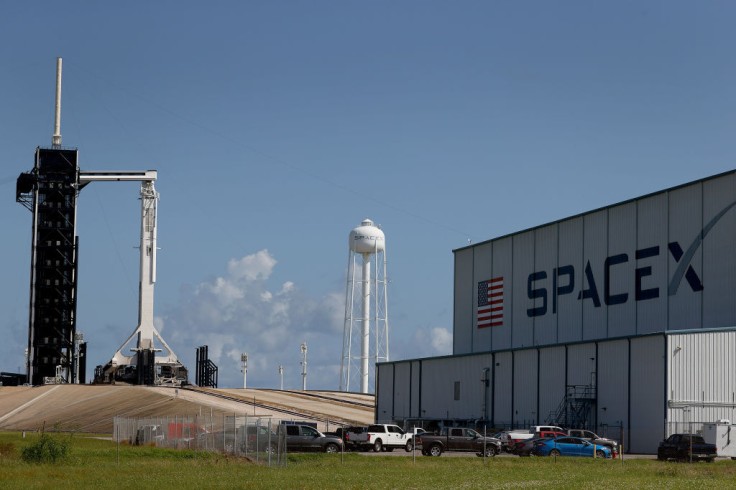
Japan's national space agency, JAXA, is looking to create reusable rockets to reduce launch costs. Of course, the project was inspired by Elon Musk's SpaceX.
In line with this, JAXA will collaborate with 30 Japanese firms and organizations to make this project happen.
JAXA to Develop Reusable Rockets, Should Elon Musk Be Worried?
The Japan Aerospace Exploration Agency (JAXA) project includes Mitsubishi Heavy Industries and ANA Holdings, with the goal of launching the first reusable rocket by 2030, per Nikkei. The said project is intended to raise the company's cost competitiveness to the level of worldwide market leader SpaceX, which is led by Tesla CEO Elon Musk.
To give further details, the H-IIA and Epsilon, which are the two most powerful rockets of Japan, are not meant to be retrieved after launch. With that said, if a portion of a rocket can be recovered, launch costs also decline as a result. Aside from this, requests for space missions from other countries are projected to rise.
For what it's worth, SpaceX is the pioneer in the development of reusable rockets.
SpaceX's rocket launches are expected to cost around 6 billion yen ($52.9 million) as compared to JAXA's H-IIA rocket, which costs around 10 billion yen ($88.2 million).
The ministry of education, culture, sports, science and technology of Japan, which supervises JAXA, has said that reusable rockets for satellite launches are important for the formation of a next-generation system.
In addition to the collaboration of 30 Japanese firms and organizations, Nikkei furthered that Mitsubishi Heavy Industries will investigate recovery techniques including drones and ships, in collaboration with logistics firm NYK Line. Meanwhile, ANA Holdings will carry out research that takes advantage of its expertise in aircraft operations and maintenance.
Read Also : NASA Moon Orbiter Snaps Amazing Photo of Saturn--Including 10 to100 Million-Year-Old Rings!
While NIPPI Corporation and GH Craft, a Teijin subsidiary, will work on a landing gear system.
Nagoya University is experimenting on a lithium-ion battery that can withstand vibrations. Canon IT Solutions, a Canon Marketing Japan company, plans to employ a virtual environment to improve its production operations. Low-cost small electric motors will be studied at Chiba Institute of Technology, while composite materials will be studied at Kanazawa Institute of Technology.
In 2026, JAXA and its partners want to have a prototype ready and execute the initial launch test four years later.
By developing reusable technology and boosting the number of launches, JAXA intends to bring down the cost to around 500 million yen ($4.4 million) by the early 2040s.
How Much Does Elon Musk, SpaceX Save From Reusable Rockets?
Elon Musk's SpaceX improved their landing tactics over time, going from landing two Falcon 9 rockets in 2014 to landing 15 boosters in 2017, per Inverse.
Since it requires spare fuel for the return trip, designing a rocket to land means it can take less into orbit. In addition, SpaceX will have to spend more money on improvements.
Moreover, NASA Spaceflight reporter Michael Baylor stated on Twitter that United Launch Alliance, which is another participant in the current space race, has claimed that a corporation must reuse a rocket 10 times for the economics to make sense.
Baylor also noted that SpaceX, on the other hand, can land six times with a single booster.
Surprising the internet community, SpaceX founder Elon Musk directly replied to Baylor's tweet.
Payload reduction due to reusability of booster & fairing is <40% for F9 & recovery & refurb is <10%, so you’re roughly even with 2 flights, definitely ahead with 3
— Elon Musk (@elonmusk) August 19, 2020
If Elon Musk's assertion is accurate, reusing a booster will save money after three flights.
When asked by Twitter user @Erdayastronaut about how many flights might SpaceX be able to accomplish with a single booster, the world's richest man claimed that there was perhaps no limit.
I don’t want be cavalier, but there isn’t an obvious limit. 100+ flights are possible. Some parts will need to be replaced or upgraded. Cleaning all 9 Merlin turbines is difficult. Raptor is way easier in this regard, despite being a far more complex engine.
— Elon Musk (@elonmusk) August 19, 2020
Related Article : Elon Musk Wants to "Avenge the Dinosaurs" With NASA DART Mission









